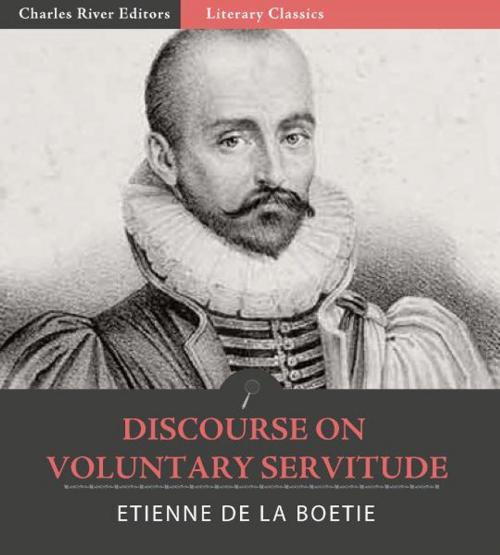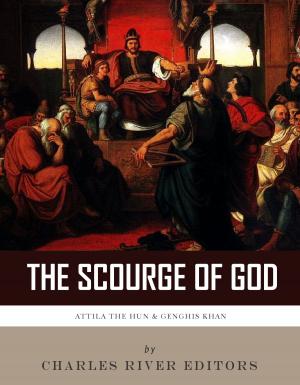| Author: | Étienne de La Boétie | ISBN: | 9781619826380 |
| Publisher: | Charles River Editors | Publication: | January 20, 2012 |
| Imprint: | Language: | English |
| Author: | Étienne de La Boétie |
| ISBN: | 9781619826380 |
| Publisher: | Charles River Editors |
| Publication: | January 20, 2012 |
| Imprint: | |
| Language: | English |
Étienne de La Boétie (November 1, 1530 August 18, 1563) was a French judge, writer, anarchist, and political philosopher often credited with founding modern political philosophy in France. La Boétie was also a distinguished poet and humanist, translating Xenophon and Plutarch. Though he only lived a short life, his friendship with eminent essayist Michel de Montaigne helped immortalize him through Montaignes writing on the friendship. La Boéties most famous writing was an essay attacking absolute monarchy as tyrannical, titled Discours de la servitude volontaire ou le Contr'un (Discourse on Voluntary Servitude, or the Anti-Dictator). The essay asserts that tyrants have power because the people give it to them. Liberty has been abandoned once by society, which afterward stayed corrupted and prefers the slavery of the courtesan to the freedom of one who refuses to dominate as he refuses to obey. Thus, La Boétie linked together obedience and domination, a relationship which would be later theorised by latter anarchist thinkers. By advocating a solution of simply refusing to support the tyrant, he became one of the earliest advocates of civil disobedience and nonviolent resistance. This edition of Discourse on Voluntary Servitude is specially formatted with a Table of Contents.
Étienne de La Boétie (November 1, 1530 August 18, 1563) was a French judge, writer, anarchist, and political philosopher often credited with founding modern political philosophy in France. La Boétie was also a distinguished poet and humanist, translating Xenophon and Plutarch. Though he only lived a short life, his friendship with eminent essayist Michel de Montaigne helped immortalize him through Montaignes writing on the friendship. La Boéties most famous writing was an essay attacking absolute monarchy as tyrannical, titled Discours de la servitude volontaire ou le Contr'un (Discourse on Voluntary Servitude, or the Anti-Dictator). The essay asserts that tyrants have power because the people give it to them. Liberty has been abandoned once by society, which afterward stayed corrupted and prefers the slavery of the courtesan to the freedom of one who refuses to dominate as he refuses to obey. Thus, La Boétie linked together obedience and domination, a relationship which would be later theorised by latter anarchist thinkers. By advocating a solution of simply refusing to support the tyrant, he became one of the earliest advocates of civil disobedience and nonviolent resistance. This edition of Discourse on Voluntary Servitude is specially formatted with a Table of Contents.















